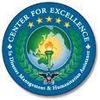Search Results
- All results (2432)
- Customs (9)
- Resources (239)
- Standards (15)
- Organisations (2043)
- News (22)
- Stories (75)
- Quotes (11)
- Guidelines (1)
- Q & A (7)
- Videos (3)
Disaster Database Project
The Disaster Database Project is a collection of data on man-made and natural disasters around the world. Its focus is to capture critical data on events and to facilitate further exploration of incidents. As a living database, entries change as additional material on an event becomes available. It...
How Can My Company Help? - A Guide for Country Managers in Responding to Natural Disasters

How Can My Company Help? - A Guide for Country Managers in Responding to Natural Disasters is intended to help companies prepare for a local corporate response to crises in their country or region. The guide includes information on building partnerships with relief agencies, assessing on-the-ground...
Code of Conduct for the International Red Cross and Red Crescent Movement and NGOs in Disaster Relief

Code of Conduct for the International Red Cross and Red Crescent Movement and NGOs in Disaster Relief seeks to maintain high standards of behaviour and improve efficiency of relief organisations, while maintaining independence. It is a voluntary code that may be adopted by any organisation, and it...
Disaster Risk Reduction (DRR) recommendation by the World Economic Forum
Embracing the concept of Disaster Risk Reduction (DRR) is important for all actors – public, private and non-governmental. While robust cost/benefit analyses still need to be conducted, professionals in the field of disaster management argue that the human and economic costs of natural...
Natural Disaster Risk Reduction: The policy and practice of selected institutional donors
In early 2003 Tearfund interviewed nine key donor organisations to determine the level of priority they give to disaster risk reduction within their relief and development programming, and the reasons behind this level of prioritisation.
Disaster Management: A Role for the Private Sector
Disasters disrupt business activities on which the local population depends, affecting livelihood recovery and means to earn a living.
Partnership for disaster response

Partnership for Disaster Response aims to bring together the many resources and capabilities of the private sector to enhance and accelerate on-the-ground relief and recovery following major natural disasters in the United States and abroad.
Community Based Disaster Risk Management (CBDRM) - Field practitioners' handbook

The concept of Community-based Disaster Risk Management (CBDRM) has emerged during the past two decades in South East Asian countries. The promoters included NGOs, citizen’s organizations, humanitarian agencies and government departments in different countries in the region.
2010-2011 World Disaster Reduction Campaign

Cities and local governments need to get ready, reduce the risks and become resilient to disasters. For the next two years and beyond, the United Nations International Strategy for Disaster Reduction (UNISDR) will campaign together with its partners for this to happen.
Sompo Japan Insurance helps to develop puppet play that teaches disaster awareness

Under its “Education for Disaster Reduction” programme, Sompo Japan Insurance supports non-profits in presenting a puppet show for disaster awareness.
IBM Combines Technology Donations and Volunteering for Disaster Relief

Over the last 10 years, IBM has responded to more than 70 natural disasters and provided millions of dollars for its disaster-relief experts to participate in cross-border volunteer opportunities.
Aid Agency To Work With Corporate Donors On Disaster Relief

International aid agency Oxfam launched a new, unique alliance for corporate donors, Aviva and Vodafone, to fund its initial response operations which will enable it to deal immediately with disasters whenever and wherever they occur.
Is your business disaster proof?

When disasters strike, 25% of businesses never re-open. And 80% of those that do not recover within one month are likely to go out of business. 75% of companies without business continuity plans fail within three years of a disaster. It is a sobering picture for any CEO or corporate board.
Disaster Response Initiative, European Foundation Centre

Disaster Response Initiative, a joint project of the US Council on Foundations and the European Foundation Centre, addresses independent funders' need for increased understanding of disaster grantmaking. It also provides a set of principles and practical guidelines to assist them in responding to...
Regional Disaster Information Centerfor Latin America and the Caribbean (CRID)

The Regional Disaster Information Center for Latin America and the Caribbean(CRID) is an initiative promoting the development of a prevention culture in the Latin American and Caribbean countries through the compilation and dissemination of disaster-related information, and the promotion of...
Asian Disaster Reduction Center (ADRC)

Asian Disaster Reduction Centre (ADRC) facilitates exchange amongst disaster reduction experts, governments and other bodies and accumulates and provides disaster reduction information.
Disaster Mental Health Institute-In progress

The mission of the Disaster Mental Health Institute is the promotion, development, and application of both practice and research in disaster mental health. Its' purpose is to research issues relating to disaster mental health and provide education for the benefit of those dealing with victims of...
Center of Excellence in Disaster Management & Humanitarian Assistance

The Center for Excellence in Disaster Management and Humanitarian Assistance is a US Department of Defense organization dedicated to international disaster preparedness and management capacity building for the purpose of decreasing the impact of human suffering. Its mission is to educate, train,...
Pacific Disaster Centre

Pacific Disaster Centre (PDC) is an applied science, information and technology centre, working to reduce disaster risks and impacts on peoples' lives and property. PDC works to foster disaster resiliency through the use of science, information, and technology for sound, evidence-based decision...
International Strategy for Disaster Reduction

ISDR's goal is to enable all societies to become resilient to the effects of natural and technological disasters, in order to reduce human, economic and social damage.

